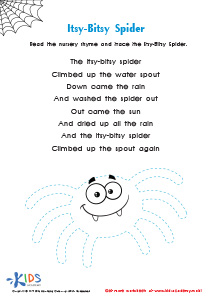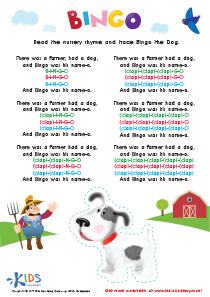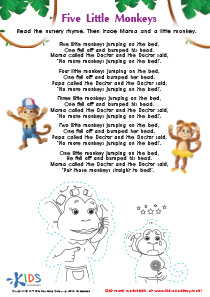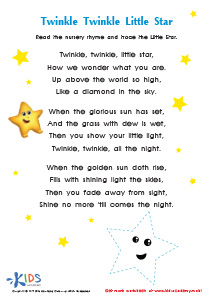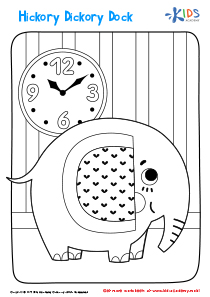Easy Nursery Rhymes Worksheets for Ages 5-8
5 filtered results
-
From - To
Discover the joy of learning with our "Easy Nursery Rhymes Worksheets" tailored for children aged 5-8! These engaging printable activities inspire creativity and enhance literacy skills through the power of beloved nursery rhymes. Designed for young learners, our worksheets include fun exercises that promote phonetic awareness, comprehension, and vocabulary development. Whether your child is tracing letters, matching words to illustrations, or filling in rhyming pairs, our worksheets provide a nurturing way to develop language skills while enjoying classic rhymes. Perfect for home or classroom use, these resources make learning playful and effective. Dive into our collection and spark a love for reading today!
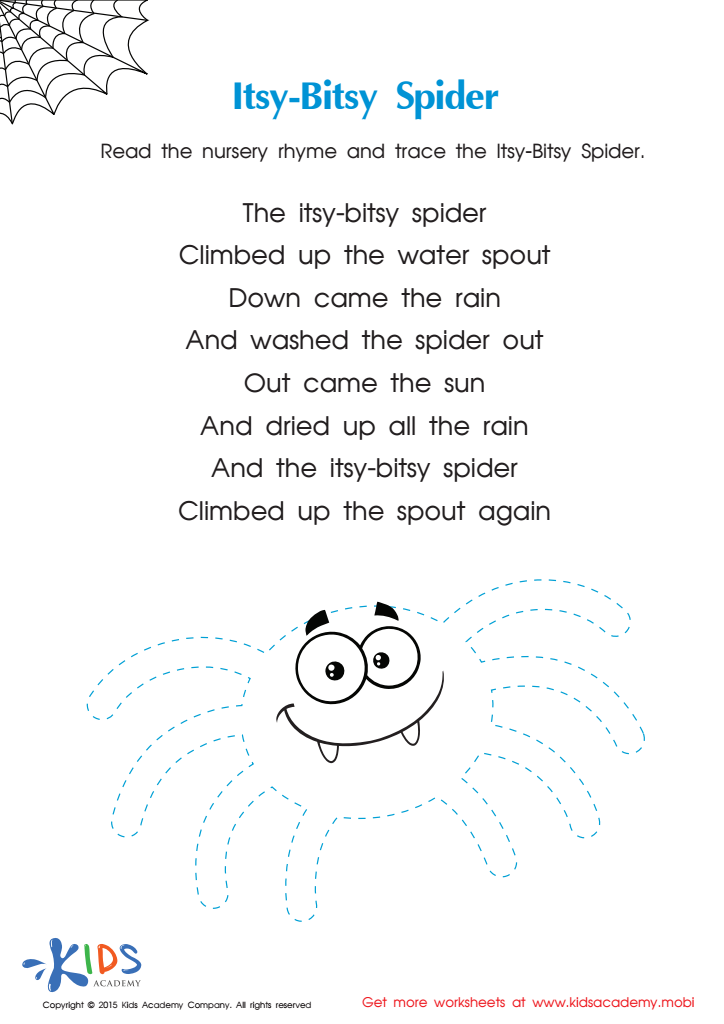

Itsy Bitsy Spider Nursery Rhyme PDF Worksheet


The Five Little Monkeys Nursery Rhyme Worksheet
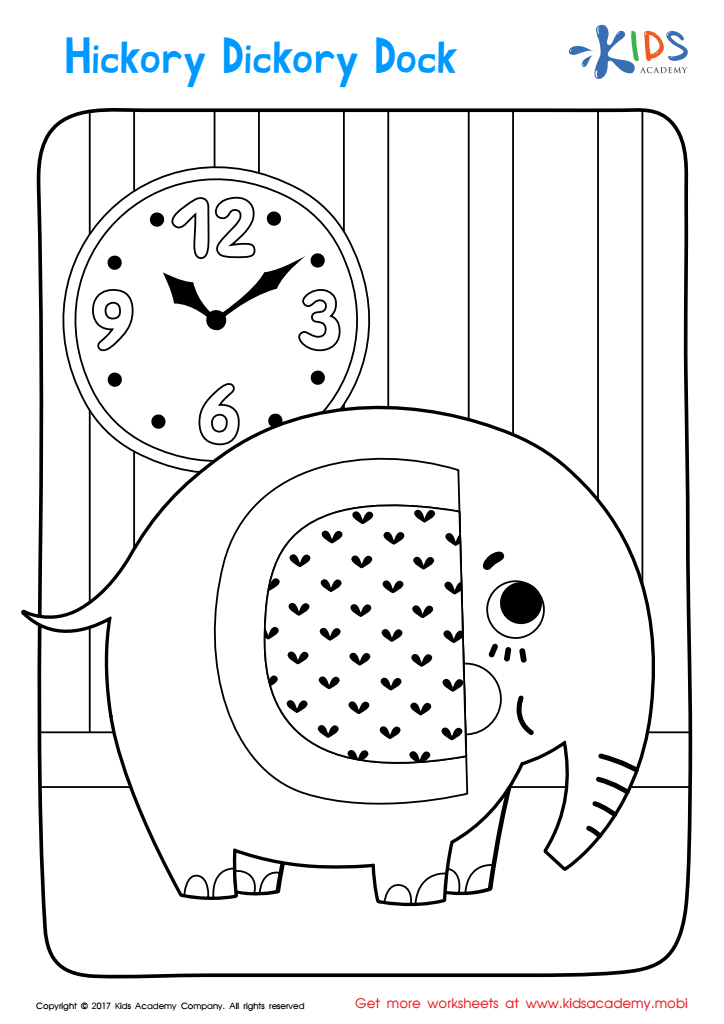

Hickory Dickory Dock Coloring Page
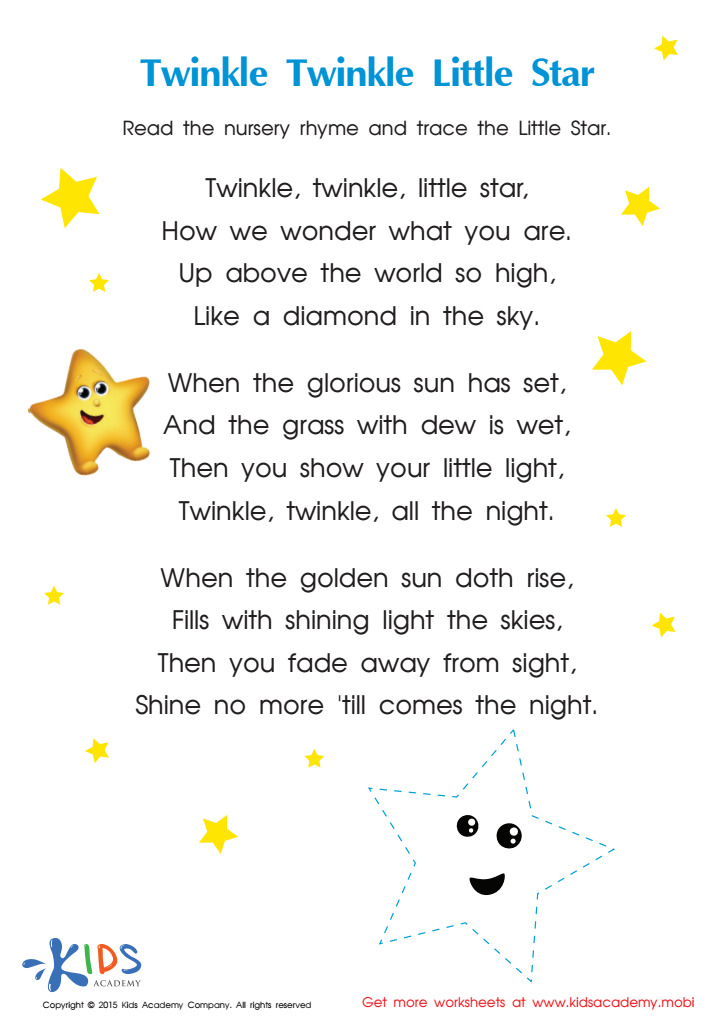

Nursery Rhymes: Twinkle Little Star Worksheet
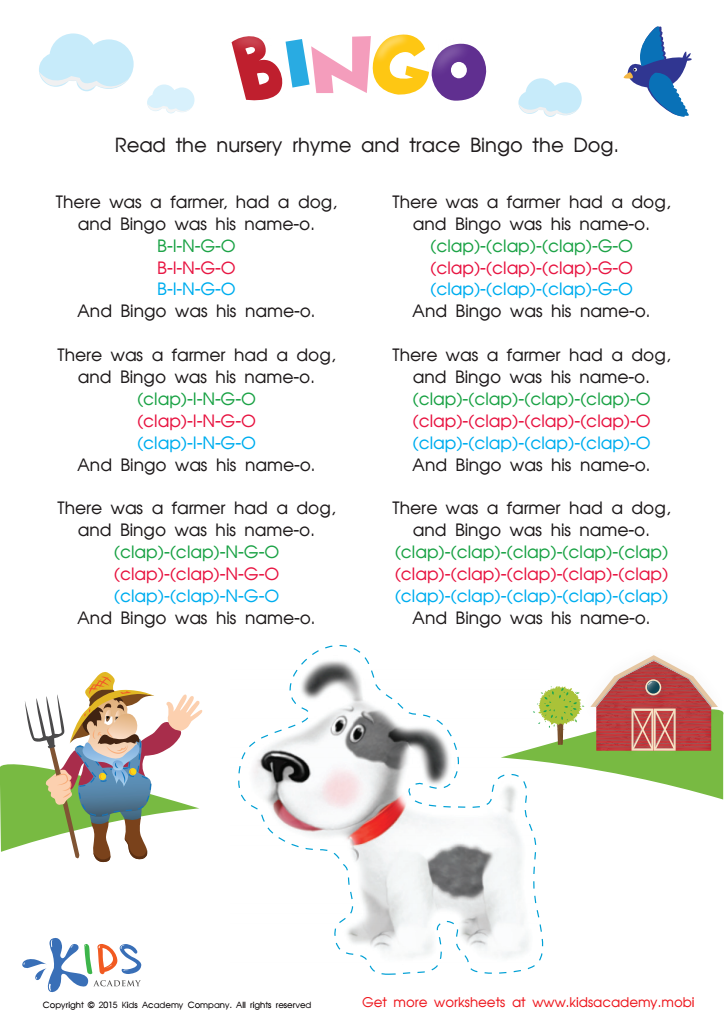

Nursery Rhymes: The Bingo Song Worksheet
Easy nursery rhymes are a valuable tool for parents and teachers working with children aged 5 to 8, providing numerous developmental benefits that can enhance a child's learning experience. Firstly, these rhythmic and melodic verses foster phonemic awareness, essential for reading development. Through repetition and rhyme, children learn to recognize sounds, syllables, and words, laying a strong foundation for literacy skills.
Additionally, nursery rhymes introduce cultural literacy, exposing children to traditional stories and values, which can enrich their understanding of the world. This engagement with language shapes vocabulary, enhances memory, and builds listening skills. Furthermore, the shared experience of singing or reciting nursery rhymes promotes bonding between parents, teachers, and children, supporting emotional and social development.
Nursery rhymes also foster creativity and imaginative play. By exploring characters and narratives within the rhymes, children can enhance their critical thinking skills and explore storytelling elements. Lastly, the simple structure of these poems can encourage children to create their own rhymes, boosting their confidence and self-expression. In a nutshell, incorporating easy nursery rhymes into learning aligns with holistic educational principles, bridging academic growth with personal development in young learners.

 Assign to My Students
Assign to My Students











